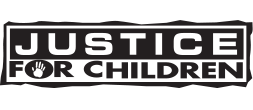According to the National Committee to Prevent Child Abuse, 3 million new reports of child neglect or abuse were made in 1993, one report every 10 seconds. The recent National Incidence Survey III conducted by the Department of Health and Human Services found that fully 72% of all reports received by CPS, or 2,160,000 reports of abuse or neglect, were never investigated by CPS. 1993 records from Children’s Protective Services (“CPS”) show that almost half of all children who were confirmed as abused or neglected did not receive any follow-up assistance from CPS.
Of those cases reported, an estimated 1,299 children died from abuse or neglect. 90% of those children were age 5 or younger. And, 42% of the children who died had been previously reported to CPS as being in danger.
These preventable child deaths are not merely the result of incompetency or excessive caseloads, but rather the direct and predictable consequence of a social service delivery system that places a higher priority on preservation of the family unit and rehabilitation of the offender than on protection of the child.
Fundamental to understanding why we are failing the abused child is the fact that children who are victims of crimes are treated differently from all other victims of crimes. Only in instances of crimes against children does our law enforcement establishment allow CPS, a social service agency, lacking law enforcement training, experience, and priorities to receive the initial report of abuse, to perform the initial “civil” investigation of the crime, and dictate the progress of the criminal case.
Only in cases of child abuse is a victim forced by the state to live in the same home with his or her abuser. And, only in cases of child abuse is a person denied the right to be safe in his or her own home. This points out a fundamental issue involving the rights of children: They have no rights. Because children cannot speak for themselves, they are denied access to justice and equal protection under the law.
Allowing CPS to control the criminal investigation and the determination of when or if to remove the child from harm’s way has proved to be a fatal error by law enforcement. Whereas police agencies measure their response time to the scene of adult crimes in minutes (and child abuse cases invariably involve first degree felonies where the child is literally being held hostage by the perpetrator), CPS measures acceptable response time in terms of days. A “priority one” or life threatening report of child abuse means CPS is required under their own guidelines to make the crime scene in 24 hours!
Worse yet, CPS lacks the victim’s perspective of law enforcement (whose complaining witness must be protected to preserve the criminal case). CPS’s “client” is not the child, but the family. Their goal is to rehabilitate the perpetrator and preserve the “family unit”; to perform a social experiment at the child’s expense. Unfortunately, few of such experiments have shown to be successful. Rates of reabuse in such homes are astronomically high.
This family preservation bias has been strongly motivated by federal funding which has required, as a condition to receipt of the funds, that local CPS agencies demonstrate that “reasonable efforts” have been made to preserve the family. Not surprisingly, when the vulnerable child abuse victim is kept in the same home with the person whom they may testify against and perhaps send to prison, the child often forgets or “recants” the allegations. This would be no different than forcing an adult victim of rape or battery to live with their rapist or batterer during the pendency of the criminal investigation, except that children are placed in even greater danger. It is inherently contradictory to have the same agency responsible for the investigation of a crime and protection of the child, on the one hand, and the preservation of the abusive family on the other! Despite the best intentions of the most dedicated social worker, a child cannot be protected in an abusive home.
As various parts of the country have experienced “system failures” with CPS, a national consensus has developed that this family preservation agenda is risky and unworkable, and that children must be removed from homes whenever they are abused or neglected. This attitude is strongly supported by research from the social sciences. While some efforts to rehabilitate parents who neglect or abuse their children have been successful, the results have never been predictable. In fact, the overwhelming statistical and clinical evidence indicates that most child abusers will continue to abuse, regardless of rehabilitation programs. Dr. Richard J. Gelles, Ph.D, a nationally recognized expert on family violence and formerly one of the strongest proponents of family preservation, has stated that the evidence is in and the policy of family preservation has been an abysmal failure.
